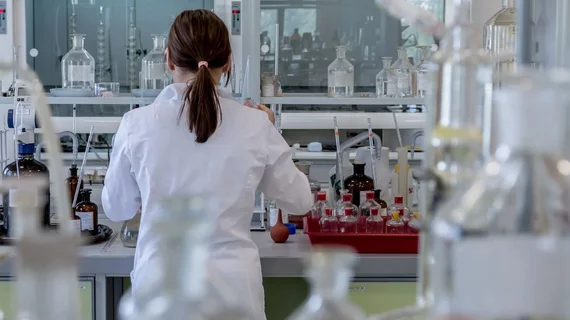NorthStar Medical Radioisotopes announces partnership to develop COVID-19 therapeutic agent
NorthStar Medical Radioisotopes is partnering with biopharmaceutical company Monopar Therapeutics on a new medical therapeutic drug to combat severe cases of COVID-19.
According to the June 16 announcement, the duo will combine Monopar’s novel monoclonal antibody (MNPR-101) with NorthStar-supplied therapeutic radioisotopes to develop a “highly selective agent” that can kill cytokine-producing immune cells. These “cytokine storms” are believed to be responsible for causing severe lung damage in many COVID-19 patients.
“We are pleased to work together with Monopar in the battle against COVID-19,” Stephen Merrick, CEO of Beloit, Wisconsin-based NorthStar, said in a statement. “Our hope is that, by joining forces, we can develop a targeted radiopharmaceutical treatment that has the ability to prevent patients with severe COVID-19 from being placed on ventilators and from dying.”
Monopar, which is based in Chicago, says its pre-IND stage humanized urokinase plasminogen activator receptor-targeted monoclonal antibody (MNPR-101) attacks the specific enzyme and receptor that is expressed on activated immune cells. Once a person is infected with the novel virus, these cells produce cytokines that cause inflammation throughout the body largely responsible for poor outcomes and death in those with severe COVID-19 infections.
The therapeutic agent mitigates the cytokine storm damage while sparing healthy cells.
“An antibody carrying a therapeutic radioisotope could gain entry into these cells through uPAR and deliver its cytotoxic payload to kill these cells while sparing normal tissue,” said Andrew Mazar, PhD, chief scientific officer of Monopar.

